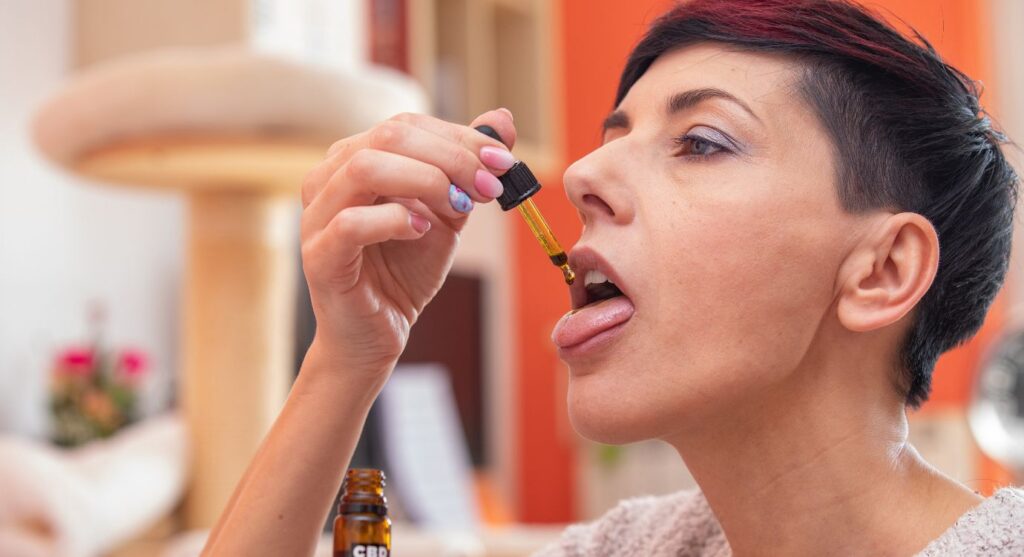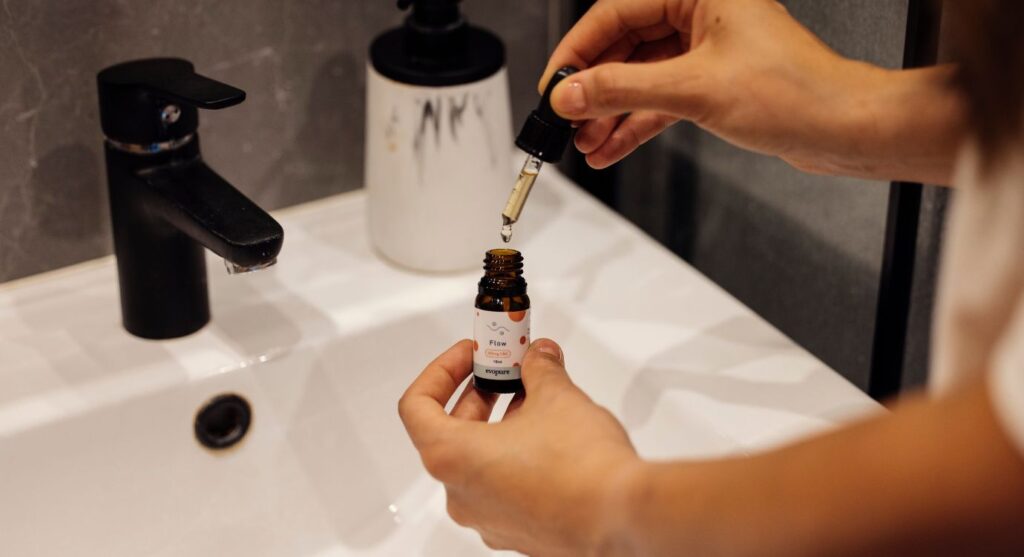Free delivery on all orders over £45
Free delivery on all orders over £45

Medically reviewed by
Since it’s commonly known that people can develop a tolerance to cannabis, people often wonder, “Can you build a tolerance to CBD?”
Considering the price of CBD (the good stuff never comes cheap!), it makes sense that consumers may be wary about CBD tolerance levels.
The fear is simple – they will start taking CBD and enjoy the effects but then have to take more and more to reproduce that initial response.
Thankfully, with CBD, it doesn’t work like that.
In this article, we’ll explore everything you need to know about CBD and tolerance:
Let’s dive in…
Tolerance is your body’s way of adapting to certain substances. When people talk of having ‘built a tolerance’, they describe the receptors in their body becoming desensitised to exposure to certain substances.
If your tolerance for a substance grows, you will need to take more of the substance to achieve the same effects.
Tolerance often has negative connotations in that it is associated with addiction and withdrawal. After building tolerance to certain substances, the body may become dependent on them and crave them to feel ‘normal’.
This means if you stop taking the substance, you will suffer withdrawal symptoms.
Addiction takes this one step further and can be defined as a health condition that involves changes in brain activity. Addiction can cause intense cravings for the substance by causing neurotransmitters like dopamine to trigger randomly.
No, you can’t build up a tolerance to CBD.
While you might build up a tolerance to THC, CBD interacts with your body – and with cannabinoid receptors – in a different way (by stopping our natural endocannabinoids from breaking down, rather than locking onto cannabinoid receptors).
Read more: CBD vs THC
10% off on your first order
Complete this one-minute quiz and find the right products for you.
Rather than lose effectiveness as it is taken more regularly, it is thought that CBD could actually have the reverse effect.
So regular consumption of CBD could result in an increased reaction to the substance over time – meaning that after long-term use, you would need less CBD rather than more.
Sounds like a winner to us.
But why does this happen?
Well, it’s thought to be because – as alluded to earlier – CBD doesn’t bind to endocannabinoid receptors.
Instead, by interacting with enzymes close by, CBD may help to improve the binding affinity of certain receptors while increasing the availability of endocannabinoids and the levels of anandamide in your body.
So CBD helps boost your body’s natural cannabinoids in the long term – not just at the point of consumption.
Without knowing about the reverse tolerance mechanism of CBD, users might assume that CBD isn’t working for them. But instead of thinking of CBD as a medicine (because it isn’t one), you should consider it a supplement to support your well-being.
If you stop taking pain medication, you expect your pain to return. But if you stop taking a vitamin C supplement, you wouldn’t expect your immune system to stop working immediately.
Read more: Best organic natural supplements

So, myth number one is officially busted. You can’t build up a tolerance to CBD just by consuming a lot of it.
It’s a whole different story when it comes to THC, though – many cannabis consumers report that the more cannabis they consume, the more they need to achieve that same ‘high’ feeling – or to help manage their pain if cannabis is being used medicinally.
This explains why many people get confused and assume you can also build a tolerance to CBD. But the science behind the two is different.
Excuse us while we pull our lab coats on – unlike CBD, THC binds directly with cannabinoid type 1 (CBD1) receptors in the brain. When attaching to these molecules, THC activates them, stimulating the brain’s reward system and causing you to feel the psychoactive effects associated with THC.
But if you ingest THC often, these CB1 receptors are reduced over time. So you need more THC to achieve this activation.
While this sounds rather serious, tolerance build-ups with THC aren’t permanent. By taking a tolerance break (often known colloquially as a ‘T break’), your CB1 receptors can recover over time and return to their previous levels relatively in around two weeks.
But CBD doesn’t work for me as it does for others. Is there no way I could have built a tolerance?
If you feel like CBD isn’t working for you, there are a few things you can do:
Read more: How long does CBD take to work?
And finally, you may need to simply adjust your expectations of what CBD can do.
CBD is excellent for supporting health and well-being and stimulating the endocannabinoid system, but it isn’t a magic wand or a ‘cure’ for any medical condition.
Read more: What does CBD feel like?
Look for brands that are transparent and provide third-party lab reports for their products.
Read the CBD lab report to confirm how much CBD your product really contains.
Try taking a higher dose of CBD or using a stronger CBD oil if you aren’t seeing results.
CBD build up in your system over time, therefore it may take a while before you see results.
Ok, so I won’t develop a tolerance for the stuff. But is CBD oil addictive?
The short answer is no!
CBD is not addictive. This fact is supported by significant anecdotal evidence and by research from the WHO, which found that CBD has not shown dependence in animal trials.
The only real risk of CBD addiction is not from the cannabidiol but the potential for contamination. While it’s highly unlikely, if you’re consuming CBD with illegal levels of THC, this may then have the potential to become addictive.
If you’re worried about the THC contents of your CBD oil, you should be able to check the composition analysis certificate on the seller’s website. Some sellers include a QR code on their packaging to allow you to find it quickly.
If a seller doesn’t have this certificate readily available and won’t share it when requested, there is a good chance you’ve purchased poor-quality CBD.
As long as you’re buying from a reputable seller, you never have to worry about becoming addicted to CBD.
Since CBD doesn’t cause addiction or tolerance, it will never lead to withdrawal if you stop taking it.
If you take CBD consistently so that it becomes part of your daily routine, you might feel like your routine has been disrupted when you stop taking it.
But this is very different to withdrawal from an addictive substance – which causes physical reactions.
Even something as simple as missing your morning coffee can cause withdrawal symptoms such as headaches and fatigue – with CBD, you don’t have to worry about this.
Does CBD lose effectiveness? Can you build up a tolerance to CBD? It’s often rare that we can give definitive answers in an area (CBD) that is still heavily under-researched.
But in this case, we very much can. Thankfully, you can’t build up a tolerance to CBD – but the reverse is possible, and long term users may find themselves needing less CBD to achieve the same results.
Sign up for the Evopure newsletter:
This product is not for use by or sale to persons under the age of 18. It should not be used if you are pregnant or nursing. Consult with a physician before use if you have a serious medical condition or use prescription medications. A Doctor’s advice should be sought before using this and any supplemental dietary product. This product is not intended to diagnose, treat, cure or prevent any disease.
© Evopure Ltd. All rights reserved Terms & Conditions Cookie Policy Sitemap